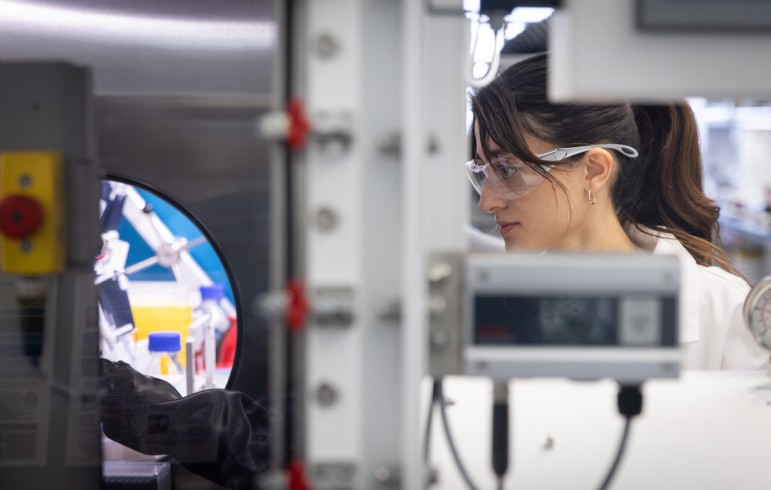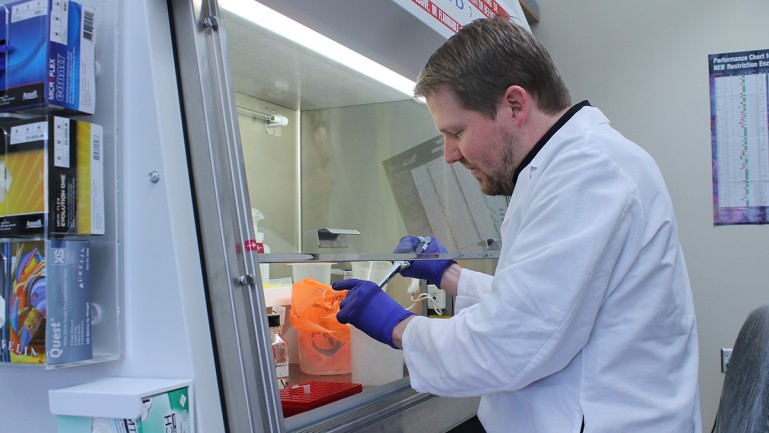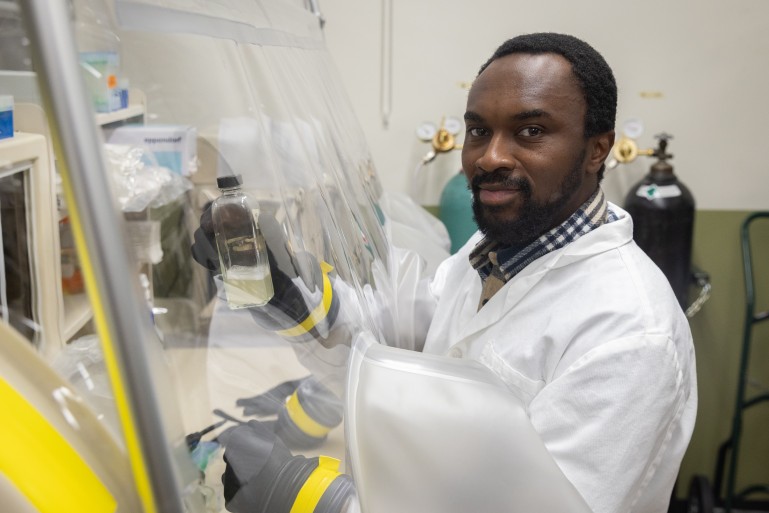Cooling systems in power plants require heat exchangers to carry low-grade energy away from the inner-workings of the electrical generation machinery—and improvements to heat exchanger technology aim to increase energy efficiency.
Rural Wisconsin is not the first place that comes to mind when someone mentions geothermal energy—a sputtering geyser in Iceland is a more likely association than a Badger State dairy farm.
Hydrogen could be the ideal fuel: Whether used to make electricity in a fuel cell or burned to make heat, the only byproduct is water; there is no climate-altering carbon dioxide.
Like gasoline, hydrogen could also be used to store energy.
Ronald Raines, Henry Lardy Professor of Biochemistry, Linus Pauling Professor of Chemical Biology, and professor of chemistry, was awarded the Ralph F.
The Center for Sustainable Nanotechnology, a multi-institutional research center based at the University of Wisconsin-Madison, has inked a new contract with the National Science Foundation (NSF) that will provide nearly $20 million in support over the next five years.
For more than 100 years, the electric utility business model has looked the same – one private, centralized source providing all of its customers’ energy needs.



